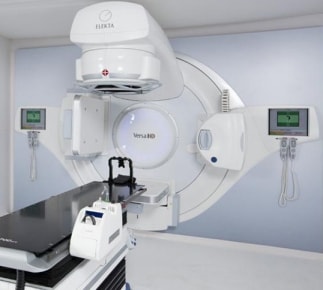Research into Mesothelioma Treatment in the UK
By Kathy Cooke. 9th May 2014
Pleural Mesothelioma is extremely resistant to conventional methods of treatment and as a result most victims of the disease do not survive beyond 1-2 years. New treatments are desperately needed to treat this disease and work is underway throughout the world to identify new drugs and methods to fight the disease.
It can take over a decade for new treatments to pass through the required clinical trials and be tested adequately to ensure that they are effective and safe to use in patients.
The following is a summary of the current trials still recruiting patients in the UK.
Radiotherapy

SMART: It is thought that mesothelioma cells can grow in the scar tissue following a biopsy / operation in the chest wall. Radiotherapy can be given to the surgical area to decrease the risk of the disease spreading to the chest-wall. The SMART trial aims to find out the best time to give the radiotherapy, what the side effects are and effect of treatment on quality of life. It aims to recruit 203 people and is due to end in September this year.
PIT: A Phase III clinical trial is underway in the UK studying the effectiveness of prophylactic radiation of tracts to stop or delay cancerous chest lesions appearing after biopsy or other incisions in pleural mesothelioma patients. This randomised trial is due to end 1st June 2015 after recruiting 400 people.
Immunotherapy
SKOPOS is a trial run in Cardiff investigating the use of the anti-cancer vaccine TroVax in conjunction with standard chemotherapy drugs, cisplatin and Pemetrexed (Alimta), in pleural mesothelioma patients. Mesothelioma cells can carry the 5T4 protein and TroVax is designed to stimulate the immune system to recognise the protein and fight the mesothelioma cells. The trial is investigating if TroVax can improve the overall survival of patients. It is due to stop at the end of 2014 after recruiting 26 people in the UK.
An on-going trial in Sheffield uses a type of virus HSV1716 to infect the mesothelioma cells and kill them. It has worked in laboratory studies and is now being tested to see how safe it is to use in patients with pleural mesothelioma. The trial is due to stop recruiting at the end of this month.
Biological therapy
A Phase 1/2 trial run from Leicester, London and Sheffield is investigating the optimum dose of a drug called ganetespib in conjunction with standard chemotherapy i.e. cisplatin and Pemetrexed (Alimta), in pleural mesothelioma patients. This is a type of biological therapy called a heat shock protein 90 inhibitor which stops cancer cells from dividing. It ends January 2015.
The COMMAND trial is another type of biological therapy with stops the signals that cause cancer cells to divide and grow. The drug in this trial is defactinib. It is a randomised trial and aims to find out if it helps people taking it more than a placebo following chemotherapy for pleural mesothelioma. This Phase 2 trial ends August 2015 with the aim of recruiting over 370 people internationally and in the UK is located in 7 cities including Southampton, Cardiff and London. Defactinib is widely thought to be a contender for first line maintenance treatment for pleural mesothelioma so the results of the trial are keenly awaited.
Other international research to look out for includes:
An article published in April this year suggests that a drug used to treat alcoholism may have a place in management of mesothelioma patients. Disulfiram has been used to make people unable to stomach alcohol by interfering with alcohol pressing enzymes in the body. Researchers in the US have found that it stops the growth of meso cells by inducing apoptosis in the laboratory setting.
PLoS One. 2014 Apr 1;9(4):e93711. doi: 10.1371/journal.pone.0093711. eCollection 2014
Photodynamic therapy - using light energy to kill meso cells. A photo-sensitizing drug is injected into the body that stays longer in cancer cells than healthy ones. A laser then delivers a wavelength-specific light starting a reaction that kills the meso cells. The following article looks at intraoperative photodynamic therapy:
Lung Cancer Management. April 2013, Vol. 2, No. 2, Pages 107-119 , DOI 10.2217/lmt.13.8 (doi:10.2217/lmt.13.8)

Author
Kathy Cooke MA. BSc
Cancer consultant and advisor
Kathy has worked in the cancer field for over 30 years. She was course leader for the MSc in Radiotherapy and Oncology at University of Hertfordshire. Then pre-treatment radiotherapy manager at the Cromwell Hospital in London and Partnership Quality Lead for Macmillan Cancer Support.. Read more >













